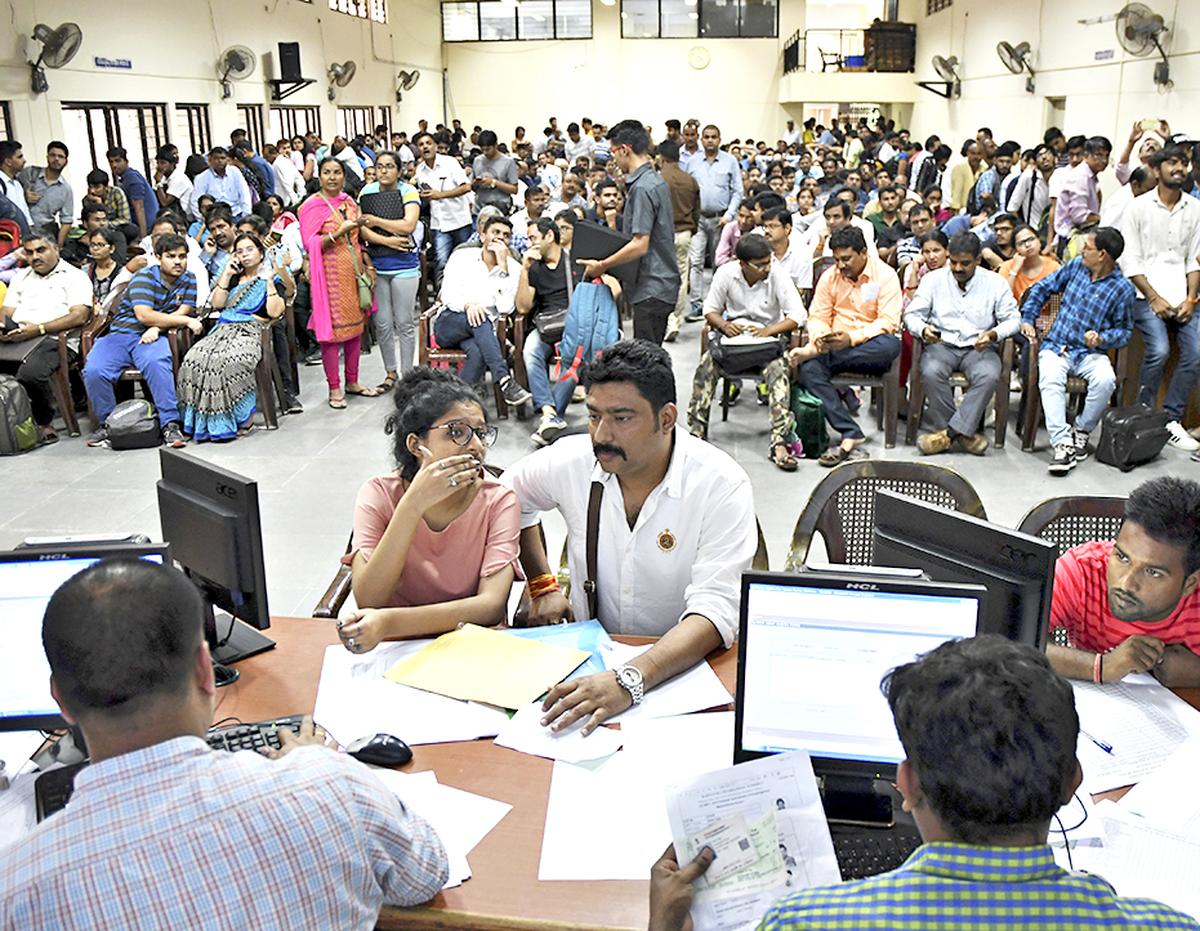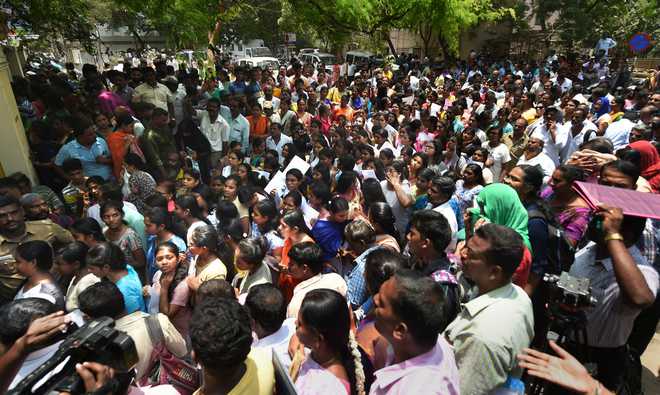The Karnataka Examinations Authority (KEA) has announced that the second round of CET-NEET counselling for engineering admissions in the state will face delays, prompting officials to request an extension of the admission deadline. This development has created widespread anxiety among students and parents who were eagerly waiting for the counselling process to conclude within the scheduled timeline. With thousands of aspirants eyeing engineering seats across government and private colleges, the delay has cast a shadow of uncertainty over their academic future. Many families have expressed frustration as they struggle to manage both logistical and financial planning amid the confusion.
KEA officials clarified that the postponement stems from administrative challenges, including the need to reconcile seat availability and reservation quotas while accommodating students who are still awaiting results from parallel examinations. The authority highlighted that accurate seat allocation is crucial to ensure fairness and transparency, making it necessary to request additional time from the relevant higher education bodies. This delay, although causing emotional distress, is being justified as a step toward preventing future legal disputes and errors in seat allotment. Parents, however, feel that such systemic inefficiencies add unnecessary stress to an already competitive process.
The delay in the counselling round has sparked debate over the preparedness of Karnataka’s admission system. Education experts argue that while flexibility is needed in such a complex process, recurring delays reflect deeper structural flaws that require urgent reforms. With students balancing multiple entrance exams, coaching schedules, and admission deadlines, every postponement translates to emotional exhaustion. Families from rural areas are particularly burdened, as they must travel long distances, manage accommodation, and bear additional expenses while waiting for final confirmations. This uncertainty has put the spotlight on the KEA’s ability to streamline operations effectively.

Stakeholder Perspectives on the Admission Delay
Students have voiced their concerns, stating that the delay has disrupted their academic planning and caused immense stress during a crucial transitional period. Many fear losing opportunities to secure seats in reputed institutions due to overlaps with other admission processes. For families who rely heavily on timely updates from KEA, the constant shifting of schedules has created widespread dissatisfaction. Several parents’ associations are now urging the government to intervene and ensure that students are not penalized for administrative shortcomings. Anxiety levels remain high, as candidates remain unsure about when the next round will actually begin.
On the other hand, KEA officials insist that the request for an extension is a responsible measure rather than negligence. They argue that rushing through the counselling process could lead to errors in seat allotment, which might later result in legal complications or demands for additional rounds of counselling. Higher education authorities are reportedly in discussions with universities and private colleges to accommodate the revised timeline without affecting the overall academic calendar. While some stakeholders agree with this cautious approach, the lack of clarity and communication has continued to frustrate students and their families who demand more transparency.
The Karnataka Examinations Authority (KEA) has announced a delay in the second round of CET-NEET counselling for engineering admissions, causing a wave of anxiety among students and parents. Thousands of aspirants who were preparing for a smooth transition into colleges are now facing uncertainty, which has disrupted their academic planning. Families are struggling to manage logistical arrangements and financial commitments as they wait for clarity on the revised schedule. The delay has particularly affected students from rural areas who have limited access to timely updates and must travel long distances for counselling sessions, increasing both stress and expenses.
KEA officials cited administrative challenges as the primary reason for the postponement. Reconciling seat availability with reservation quotas and ensuring fair allocation requires additional time. Officials stressed that this cautious approach aims to prevent errors in seat allotment that could lead to legal disputes. While the explanation is rational from an administrative perspective, students and parents are left frustrated by the lack of precise timelines. The uncertainty has intensified anxiety among candidates who were planning to secure seats in prestigious government and private institutions across Karnataka.
The counselling delay has sparked criticism regarding the efficiency of Karnataka’s admission system. Education experts argue that repeated postponements indicate deeper structural issues within KEA. Aspirants juggling multiple entrance exams and coaching schedules are particularly affected, as each delay interferes with their preparation for other opportunities. Parents express concern over the financial implications of extended timelines, including additional accommodation costs and travel expenses. This situation emphasizes the need for more streamlined operations and better communication from KEA to reduce student stress and confusion.
Students have voiced strong concerns over the disruption caused by the delayed counselling. Many report emotional distress and uncertainty regarding their academic future. Some aspirants fear missing out on preferred colleges due to overlapping admission processes or extended deadlines. Parents’ associations have urged government intervention, emphasizing that students should not bear the brunt of administrative inefficiencies. As anxiety rises, families are demanding clear communication from KEA about the revised timeline and steps being taken to expedite seat allocation without compromising fairness.
While students and parents express frustration, KEA maintains that the delay is a responsible measure to ensure accuracy and transparency. Officials emphasize that rushing counselling could result in mistakes, legal challenges, and the need for further rounds of seat allocation. Higher education authorities are reportedly coordinating with universities and private institutions to implement a revised timeline that minimizes academic disruption. Despite these assurances, the lack of concrete dates continues to aggravate students, underscoring the importance of clear and timely communication in administrative processes.
The delay has highlighted the broader challenges within Karnataka’s competitive admission framework. Experts suggest that systemic reforms, such as digitized counselling processes and real-time seat tracking, could prevent similar issues in the future. Improved communication channels are also essential to keep students and families informed of updates. Without these reforms, administrative delays may persist, leading to recurring disruptions in students’ academic journeys. The current situation serves as a reminder of the emotional and logistical pressures faced by aspirants navigating complex admission procedures.

The Road Ahead for KEA and Students
The immediate focus for KEA is to secure an official extension from the higher education authorities, which would grant additional time to conduct counselling fairly and systematically. However, this situation underscores the urgent need for systemic reforms in Karnataka’s admission process. Experts emphasize digitization, real-time seat tracking, and better communication channels to avoid recurring issues. For students, the delay is yet another reminder of the uncertainty inherent in competitive admissions. Unless reforms are implemented swiftly, such disruptions may continue to erode trust in the system and intensify the emotional and financial burden on aspirants year after year.
Financial and emotional burdens on students have become significant due to the delay. Many families had planned travel, accommodation, and other logistical arrangements in alignment with the original counselling schedule. Extended delays have not only increased costs but also created uncertainty regarding the start of the academic year. Students preparing for multiple entrance exams simultaneously face additional stress, as shifting schedules interfere with their preparation timelines. The cumulative impact of these factors underscores the urgency of addressing systemic inefficiencies within the KEA framework.
The delay has also raised questions about transparency and accountability in Karnataka’s higher education administration. Students and parents are seeking detailed explanations about the causes and duration of the postponement. Social media platforms and student forums have become channels for expressing dissatisfaction and sharing updates, but official communication remains limited. Experts argue that a proactive approach in sharing real-time information can help manage student expectations and reduce frustration during high-pressure admission periods.
Despite the challenges, KEA remains focused on securing the necessary extension and conducting counselling in a fair and systematic manner. Officials are working closely with higher education authorities to balance seat allocation accuracy with minimizing delays. While this approach aims to uphold fairness, it also emphasizes the need for improved planning and efficiency in future counselling rounds. Students continue to wait anxiously for official updates, highlighting the emotional toll of administrative delays in competitive academic environments.
Looking ahead, the focus remains on implementing reforms to prevent similar disruptions in future admission cycles. Stakeholders stress the importance of digitized systems, transparent processes, and timely communication to ensure smooth counselling procedures. For students, the current delay serves as a reminder of the unpredictability of competitive admissions and the need to adapt to unforeseen administrative challenges. Without swift reforms, similar delays may continue to impose emotional and financial burdens on aspirants, affecting both their preparation and confidence in Karnataka’s higher education system.
Follow: Karnataka Government
Also read: Home | Channel 6 Network – Latest News, Breaking Updates: Politics, Business, Tech & More


